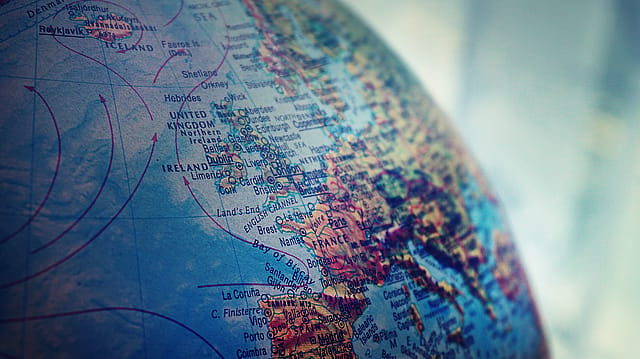Learning to love globalisation again
ADVERTISEMENT

It was the slap on the hand that did the trick. When Prime Minister Narendra Modi joked with President Donald Trump during their recent meeting, it dawned on everyone what was really happening.
It is, as always, all in the numbers. What is the total volume of India-U.S. trade? $142.1 billion in 2018. What is the volume of U.S.-Pakistan trade? $6.6 billion. The trade between India and the U.S. is 21 times that between Pakistan and the U.S.. Now who do you think Trump supports?
This story is emerging ever more starkly once India absorbed the state of Jammu and Kashmir entirely within its own constitutional territory earlier in August – the reason why the fall-out could have been contained, at least till now is that India is, finally, a big enough trading partner for most countries. And Pakistan is not. Even with China, the trade volume with India is around four-and-a-half-times that with Pakistan. Numbers talk in a way no ideology ever can (if you believe that ideology plays a role at all, of course). For the record, and as seeing all the numerous Muslim countries that have signed up supporting China’s actions in Xinjing – I don’t.
The growing meltdown within Pakistan comes from this simple realisation – sure, using a powerful lobbying firm in DC, you can get any number of op-eds printed, and maybe with time they will have an adverse impact (again, for the record, I do not think any narrative battle should ever be ignored; in our world, narrative is everything), but the sheer power of trade is impossible to ignore.
Take the United Arab Emirates (UAE) which gave Modi its highest state honour this month. The UAE’s biggest trading partner is India. Look at tiny Bahrain (1.2 million people), which also gave Modi its highest honour this month – its trade with India crossed a $1 billion last year. Look at Saudi Arabia whose state-run energy group Aramco is picking up a 20% ($75 billion) stake in Reliance Industries.
Now are you surprised that they ignore Pakistan’s protestations on the Kashmir issue? After all many of these countries have lined up to back China on its actions in Xinjiang for the same reason why they now snub Pakistan on Kashmir – India offers them long-term vigorous and stable trade ties worth billions of dollars. Pakistan offers them nothing, instead is frequently to be found asking for money from them to sustain its collapsing economy. Pakistan – or the Pakistani Army once made its people believe – that as one of the most powerful armies in the Muslim world, at least the Muslim states would always favour it because they need its protection. It is now clear that that is bunkum. At the right price, Pakistani military assistance can be bought in times of a crisis – like in everything else, the key is money.
What is the lesson here for India? The lesson that for some time, there seems to have developed a loud conversation in India about everything other than what would make it richer. It was almost assumed that India will naturally become richer. Well, as it so happens, after becoming the sixth largest economy, India has now slipped back to the seventh position – this despite wide speculation that it was only a matter of time before it became the fifth largest economy. It is a stark reminder that prosperity cannot, and should not, be taken for granted.
And that India only has the voice that it does in the world today because it is getting richer. Without economic strength, it would have little voice. But as everyone who has ever invested in the stock market understands, business needs a climate, an ecosystem, a mood to thrive. Because business is about – fundamentally – confidence. Confidence about a general sense of well-being, confidence about the future, we spend more when we feel good about ourselves, our ecosystem and our future. Narratives matter. Narratives build confidence. And if too much of narrative strikes a discordant note, there is bound to be an impact on confidence.
There is also a vital lesson here for the people who dislike globalisation. It is because of the deep trade networks of a globalised world that India has been able to handle its political negotiations on issues like Kashmir with a degree of smoothness.
But it must always be remembered that globalisation thrives on a mood of goodwill, and not strife. There is no such thing as successful globalisation amidst incessant anger. And you cannot choose to accept the economic prizes of globalisation and ignore its cultural values – the two are irretrievably intertwined.
Sentiment is, and will always, be important in business. Sentiment is an amorphous, easy to feel, but difficult to pinpoint, idea. It needs some quiet reflection. The Indian economy is going through a once-in-a-century clean-up. It needs all the good sentiment it can get.